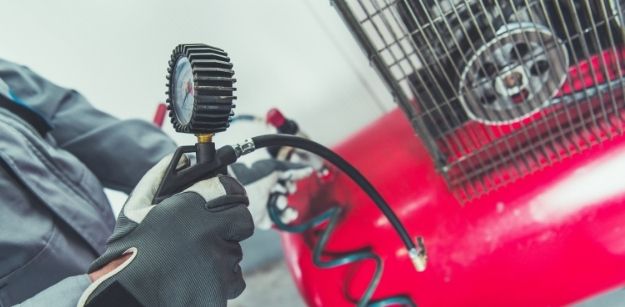An industrial air compressor is a device that converts power to potential energy using gasoline or a diesel-powered engine or electric motor. They were designed for several applications e.g. ventilating silos, operating laundry presser, running pneumatic machinery, and spraying crops. Standard maintenance is never adequate for an air compressor. It is vital to have an industrial air compressor maintenance routine in place to achieve smooth running, avoid unexpected downtime and interruptions.

Standard maintenance involves procedures done on equipment that works continuously unless it is outdated or has expired. A standard procedure aims to ensure operability and longevity of the high-tech machinery. Air compressors require preventive maintenance with routine inspections to ensure optimal working conditions. Preventive maintenance catches a mechanical problem before it leads to more complications in the system leading to costly losses. It involves the inspection of the machinery on a routine basis to identify problems and correct them so that everything works as it should. This helps to prevent the occurrence of issues that will lead to costly situations by employing low costly maintenance procedures.
Advantages of Preventive Maintenance
A staff member must be accompanied by an expert service provider to oversee the maintenance procedure. Some benefits of this procedure include
1. Avoiding Downtime
Maintenance procedures ensure that the machinery runs smoothly and efficiently therefore preventing its failure. During the period in which equipment is not operating is very costly since it stops the production process.
2. Saving money
When there are few operation failures in the air compressor system it helps to save money since no costly issues arise. Increased consistent productivity is profitable and the money saved from air compressor maintenance can be used to upgrade to better equipment.
3. Lower energy cost
Regular maintenance ensures the system functions well and within the expected rate of production. Cleaning, replacement, and lubrication of the system components guarantees effective working of the machine which reflects in energy saving. When energy is saved the final production cost also reduces. The extra money can then be invested in other infrastructure.
4. Increased air compressor life and efficiency
The maintenance process increases the life span of the air compressor and the system as a whole and increases its efficiency. Frequent check-ups and maintenance make the machinery durable.
Preventive Maintenance checks on the air compressor include:
● Air filter
The function of an air compressor is to provide clean, pure compressed air that is then used to power various functions. A clean air filter is required to ensure that quality air is supplied. It filters the air that goes into a compressor by removing ant dirt, impurities, and particulates that would affect the compressor functioning and lower the quality. Air filters are therefore cleaned frequently and changed after some time.
● Oil Filter
If oil becomes part of the final product from an air compressor it degrades the quality. In case oil is part of the production system it should be eliminated before the compressed air leaves the system. It is advisable to conduct regular checks on oil filters and replace them whenever necessary.
● Lubricant
Metal parts and joints require lubricant for smooth movement and reduce corrosion of the parts, hence eating the mechanical components. Lubricant level should be checked regularly and replaced when required.
● Motor bearings
These are tiny metal balls that are constantly in motion within the interior walls. They are lubricated to prevent the effect of corrosion and rusting. Without lubrication, they rust and slow down, and get stuck hence the motor failure.
● Belts
Belts ensure balanced movement between pulleys and the internal connected parts in the system. They need to be in the proper tension, be flexible, and firm. It is vital to change the belts since the rubber wears out and cracks with time making them lose tension and may snap during operation.
● Intake Vents
The function of an air compressor is to turn air into something that can power heavy equipment and replace the use of electrical power. The vents when filled with dirt and particulate may not serve the purpose of purifying the air.
● Other parts that require weekly checking include:
- Temperatures
- Voltage
- Vibrations
- Amps
- Air-dried performance
Conclusion
Complete preventive maintenance procedures make the air compressor more efficient, reduces downtime and repair costs. Equipment components depending on their needs are checked daily, weekly, monthly, or annually. Preventive maintenance checks ensure the equipment lasts longer and works effectively. The maintenance procedure also helps to detect a problem early and rectify it before it impacts negatively on the production system. The money saved when routine checks are done can then be invested in better company infrastructure and getting qualified staff.